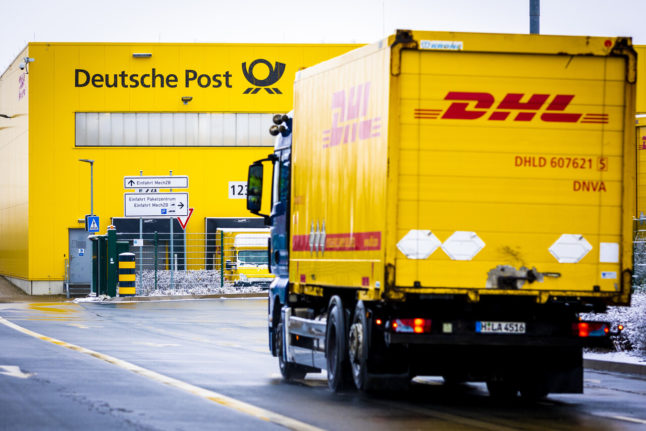What’s going on?
The Verdi trade union is demanding that Deutsche Post increase salaries for its members – approximately 160,000 employees – by 15 percent. In January and February, the union called postal workers in Germany out on a series of warning strikes to put pressure on Deutsche Post to agree to their demands.
In the third round of negotiations which concluded on February 10th, Deutsche Post rejected the union’s demand and offered instead a two-year contract which would increase employee pay by an average of 11.5 percent in two stages starting in 2024. It also offered to give employees a €3,000 inflation compensation bonus in stages starting this year.
READ ALSO: Postal delays expected around Germany as workers go on strike
Verdi rejected this offer and held a ballot for its members on whether to take industrial action. On Thursday, the result of the ballot was announced: 85.9 percent of those polled rejected the collective bargaining offer and agreed to strike indefinitely.
On Thursday, Deutsche Post also said it had registered record revenues in 2022 of €94.4 billion, driven by its international logistics business. Domestic postal work meanwhile shrank.
What is an indefinite strike?
Unlike the warning strikes earlier in the year which lasted for a maximum of a few days, a so-called unbefristet (indefinite) strike could last for much longer. The last such strike happened in 2015 and lasted four weeks in total and cost Deutsche Post an estimated €100 million.
The warning strikes in January and February led to a delay in the delivery of millions of letters and parcels but only a relatively small proportion of the post overall was affected. Some recipients were unlucky and had to wait two or three days for their letters or packages, while most didn’t even notice the consequences of the warning strike.
If there was a longer strike, however, there would probably be considerable delays to post deliveries.
How likely is the strike?
The fact that union members have voted in favour of industrial action puts more pressure on Deutsche Post at the negotiating table, but it does not mean a long-term strike will definitely happen.
“Deutsche Post AG now has a responsibility to avert an indefinite strike by making a significant material improvement to the rejected offer,” Verdi Vice Chairwoman and negotiator Andrea Kocsis said. “The result of the strike ballot shows the determination of our members to fight for a good collective bargaining result.”
So far, however, Deutsche Post has defended its initial counter-offer. In a recent press conference, Deutsche Post CEO Frank Appel, who is due to step down in May, defended the original offer, saying that it was “the best offer that has been made by any company in the last six months”.
How bad would an indefinite strike be?
According to Verdi, more than half of the 200,000 employees in Deutsche Post’s core departments are union members, so, theoretically, one in two could go on strike. However, in reality, it’s more likely that participation will fluctuate and vary from region to region, rather than everyone walking out at once.
READ ALSO: Will Deutsche Bahn staff be next to strike in Germany?
According to Nikola Hagleitner, who is responsible for the mail and parcel business in Germany on the Deutsche Post Board of Management, the company is as well prepared as possible for a threatened strike.
“We have administrative staff that we can then deploy on a selective basis,” Hagleitner said Thursday. But he said the Post would not use external employees or temporary workers to replace striking staff. Hagleitner pointed out that civil servants still work for the group, as well as employees who do not belong to a union.



 Please whitelist us to continue reading.
Please whitelist us to continue reading.
Member comments